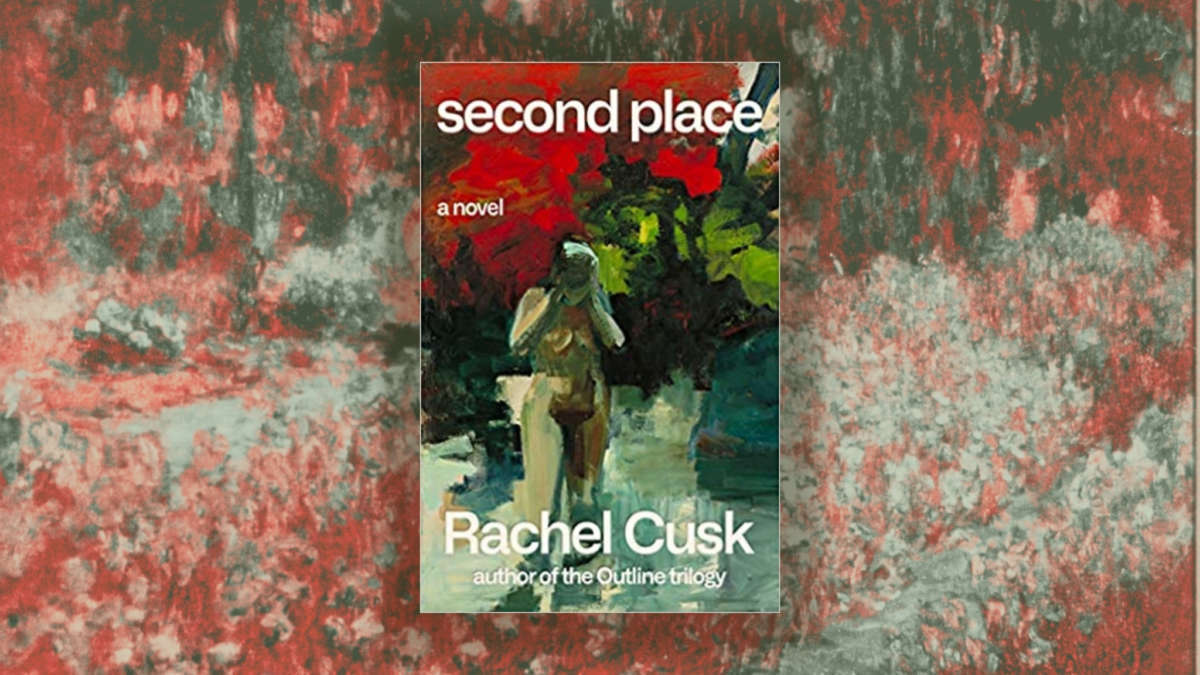Rachel Cusk earned critical renown with her “Outline” series, three books that strip bare traditional narrative formats and train the spotlight on minor characters, eliding the narrator’s identity and making her a mere conduit. Cusk’s newest novel, Second Place (Farrar, Straus and Giroux), performs an about-face from this approach, sinking us deep into the mind and body of a woman identified as M, a writer of middling stature and questionable mental stability. Hence, we enter a dark and gothic world teeming with mysteries.
Second Place is written as a series of letters that M addresses to an old friend, Jeffers. M describes surviving a chilling encounter during her first marriage and how she happened upon an exhibit of paintings by an artist named L. They struck her on a profound level. Fifteen years later, she becomes intent on luring the now-famous L to come stay in a guest house/artist’s retreat that she and her second husband Tony maintain, located on a remote marsh.
The characters’ names (or lack thereof for those identified by their initials) serve as a first clue that Cusk will explore issues of gender and privilege, asking who gets to tell a story. She constantly reinforces the idea expressed in her title, through the alphabetical ordering of “L” and “M”; M’s reference to the guest house as the “second place”; and the fact that M refers to Tony as her second husband, pointedly.
KEY TO SALVATION?
As M writes, “… ‘second place’ pretty much summed up how I felt about myself and my life — that it had been a near miss, requiring just as much effort as victory but with that victory always and forever somehow denied me, by a force that I could only describe as the force of pre-eminence. I could never win, and the reason I couldn’t seem to lie within certain infallible laws of destiny that I was powerless — as the woman I was — to overcome.”
After numerous delays and a reversal of his fortune, L at last appears. He brings a beautiful and assertive girlfriend, thereby once again making M second place. M wails at the injustice, decrying how this has “chang[ed] everything.” Increasingly solipsistic, her fragility becomes even more marked as L paints portraits of other subjects and not her. She fixates on L as the key to her salvation, in spite of her low-key husband’s objections and the mounting evidence of L’s coldness and his artistic remove.
M’s desperation for L’s artistic clarity becomes consuming. As she writes, “Why do we live so painfully in our fictions? Why do we suffer so, from the things we ourselves have invented? Do you understand it, Jeffers? I have wanted to be free my whole life and I haven’t managed to liberate my smallest toe.”
AN INTENSE AND DREAMLIKE TALE
The marital tension between M and Tony allows Cusk to dissect ideas of freedom and commitment, and she also dives into themes pertaining to motherhood and belonging. M’s adult daughter, Justine, and her boyfriend have been living in the guest cottage and must relocate to the main house when L makes his abrupt appearance. Their presence further complicates M’s attempts at controlling L and directing his attention at her and the marshes.
Frantic, M writes, “this is partly a story of will, and of the consequences of exerting it, you will notice, Jeffers, that everything I determined to happen happened, but not as I wanted it! This is the difference, I suppose, between an artist and an ordinary person: the artist can create outside himself the perfect replica of his own intentions. The rest of us just create a mess, or something hopelessly wooden, no matter how brilliantly we imagined it.”
Ultimately, M’s feverish desire culminates in a moment of startling redemption; she discovers how she “had remained a devourer while yearning to become a creator” and learns how to “regulate the currency of [her soul].” This intense and dreamlike tale will leave readers feeling similarly exhausted and inspired, newly appreciative of our capacities for receptivity, interpretation and self-definition.
https://booktrib.com/wp-content/uploads/2021/05/354746.jpeg
About Rachel Cusk:
Rachel Cusk is the author of the Outline trilogy, the memoirs A Life’s Work and Aftermath, and several other works of fiction and nonfiction. She is a Guggenheim fellow. She lives in Paris.





